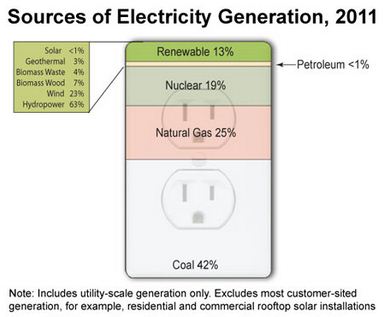Obama Wants U.S. To Return To Science
SEARCH BLOG: POLITICS
From AFP:
Obama vows return to US science prominenceU.S. high school graduation rates:WASHINGTON (AFP) — President Barack Obama pledged Monday to return the United States to a "high water mark" of scientific achievement, announcing a goal to commit three percent of GDP to research and development.
Obama laid out a deck of initiatives in a speech at the National Academy of Sciences, where he vowed to implement what he described as the largest-ever US investment in scientific research and a dramatic reversal of the ideology-driven policies of his predecessor George W. Bush.
Well, we can get some of those Chinese Ph.Ds to do our research for us.WASHINGTON — Seventeen of the nation's 50 largest cities had high school graduation rates lower than 50 percent, with the lowest graduation rates reported in Detroit, Indianapolis and Cleveland, according to a report released Tuesday.
The report, issued by America's Promise Alliance, found that about half of the students served by public school systems in the nation's largest cities receive diplomas. Students in suburban and rural public high schools were more likely to graduate than their counterparts in urban public high schools, the researchers said.
Nationally, about 70 percent of U.S. students graduate on time with a regular diploma and about 1.2 million students drop out annually [ed - and what percent of the 70% are just given their diplomas to get them out of the system?].
"When more than 1 million students a year drop out of high school, it's more than a problem, it's a catastrophe," said former Secretary of State Colin Powell, founding chair of the alliance.
Don't you love how Bush did everything on a non-scientific, ideological basis

... and the Obama Democrats are doing everything on a scientific, non-ideological basis?
“We’re seeing the reality of a lot of the North Pole starting to evaporate, and we could get to a tipping point. Because if it evaporates to a certain point - they have lanes now where ships can go that couldn’t ever sail through before. And if it gets to a point where it evaporates too much, there’s a lot of tundra that’s being held down by that ice cap....” Henry Waxman
Now... if we can only align reality with political hyperbole.
On NBC’s “Meet the Press” on Sunday, the speaker [Nancy Pelosi] twice seemed to suggest that natural gas – an energy source she favors – is not a fossil fuel.
“I believe in natural gas as a clean, cheap alternative to fossil fuels,” she said at one point. Natural gas “is cheap, abundant and clean compared to fossil fuels,” she said at another.
..








